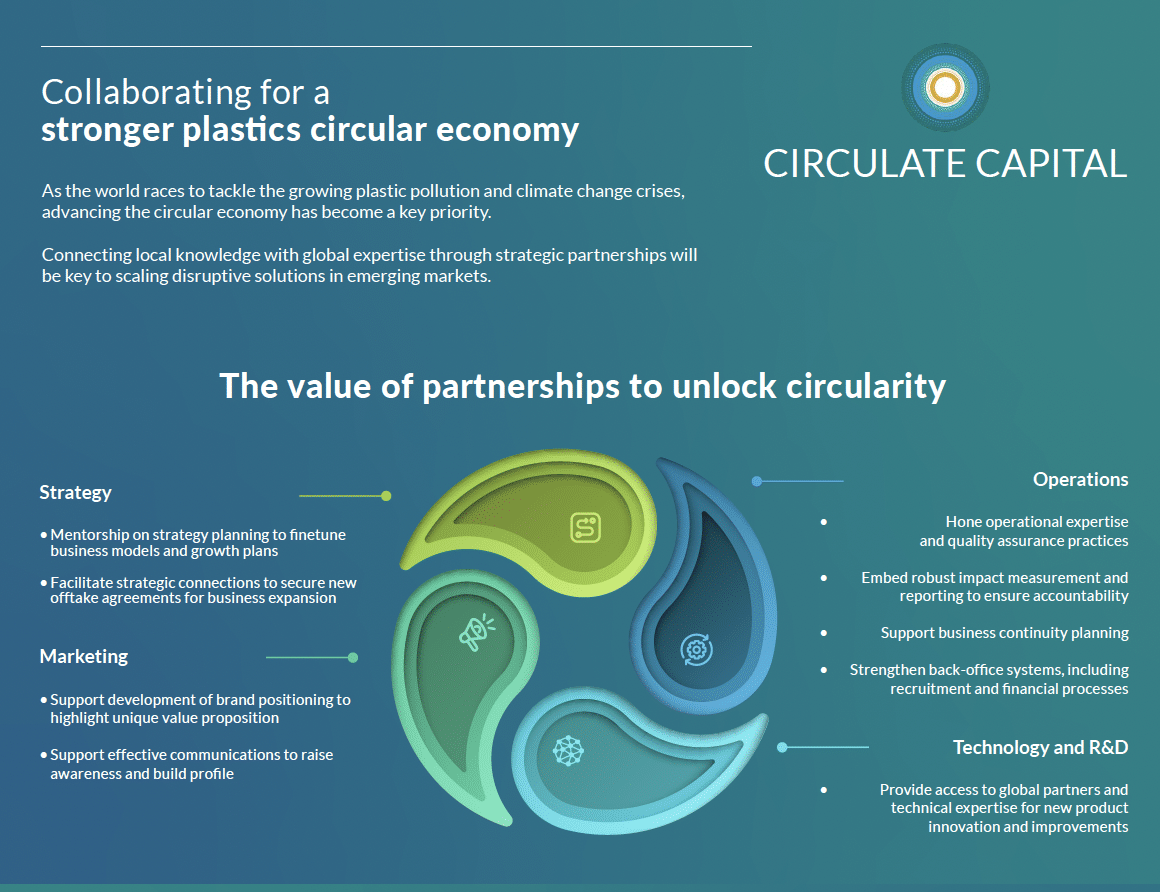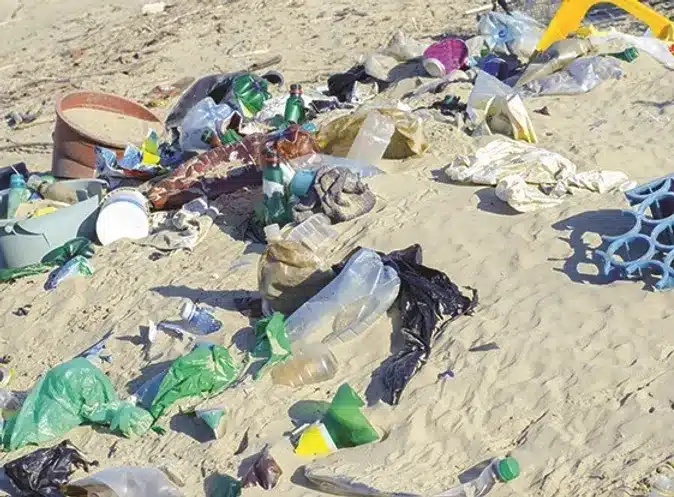Global plastics treaty will be empty words without policy to spur investment
January 17, 2023
The first meeting to commence negotiations on the Global Plastics Treaty ended in early December, with clear battle lines drawn between those advocating for a focus on global mandates versus country-specific voluntary commitments and not enough progress on important procedural issues.
But member states need not wait for consensus to begin tackling an even greater challenge: raising the capital needed to stop plastic pollution.
As negotiations continue, policymakers and all stakeholders need to urgently step up and ensure the stage is set for significantly more capital to flow into circular economy solutions.
Addressing the $1.2 trillion question
According to the recently released report by the World Economic Forum’s Global Plastic Action Partnership (GPAP) and our mission-aligned partner, The Circulate Initiative, Unlocking the Plastics Circular Economy: Case Studies on Investment, the transition to a circular economy will require an investment of $1.2 trillion and a significant shift away from business-as-usual.
Policymakers are needed more than ever to create the conditions for significantly more funding to be directed towards circular innovations and business models. From voluntary corporate commitments to supportive regulatory frameworks, there are powerful examples of how this can work in action:
- Policies like Extended Producer Responsibility support a cohesive system for plastic circularity. Bolstered by the government’s Swaach Bharat (Clean India) mission, Recykal – India’s first waste-commerce platform – was able to secure $26 million in funding from domestic and international investors in just three years. Its digital marketplace further supports the investment case for the sector by allowing for greater standardization and reliability of plastic waste management transactions.
- New financial instruments, such as blue loans, incentivize investment. Mechanisms such as tax credits and sustainability-linked corporate bonds can help to stimulate market development. For example, Indorama Ventures Ltd (IVL), the world’s largest producer of PET bottles, secured a $300 million blue loan financing package from three development finance institutions to support its plans to double its recycling capacity. This innovative financial instrument, marking the world’s first independently verified, non-sovereign blue loan, fostered the development and acceptance of issuance guidelines for the emerging blue bond market.
- Development of domestic capital markets to reduce or share risk. In Indonesia, this has already been demonstrated with the government’s green sukuk – which are compliant with Sharia or Islamic religious law – and Sustainable Development Goal-linked bonds that raise capital for infrastructure. By investing in waste management, national governments signal to the market that they recognize the breadth and urgency of the plastics problem and provide a model for further development of capital markets domestically and beyond.
The sector’s financing needs are immense, but they are attainable as more investors take notice of the opportunity for competitive returns. Further bolstered by commitments and action from the private sector, effective policy can help to drive capital to local enterprises that are advancing the circular supply chains needed to address plastic pollution and climate change.



 Thought Leadership
Thought Leadership 
 Media Coverage
Media Coverage 

